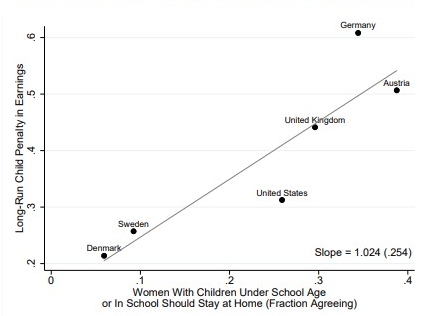It shouldn’t be news. But on international women’s day it’s worth repeating: The thing that makes someone better or worse at their job isn’t their gender.
I’ve seen it myself across 100s of interviews for roles in my team. Some men are great working with numbers, and so are some women. Some women are great working with people, and so are some men. The combination I’m hiring for – people skills and numbers skills together – appears rarely, but in both genders.
The truth – that gender doesn’t affect performance at work – also appears in the data. Women and men are no different in their performance and how they are paid.
That is, until they have children.
After that, when a woman becomes a mum, her career progress stalls, her earnings stop growing, and a gap opens up. The equivalence in the data disappears.
This means that the most important thing businesses can do for gender equality is make it easier for parents to be parents, while still having a good career.
It’s not about fixing women, it’s about fixing the workplace.
The evidence: Womens’ careers take a dive when they become mums
The chart below is from a study carried out by economists from Princeton and the LSE. It shows how earnings change after having the first child, separately for men and women, for the UK in grey and the US in black.





